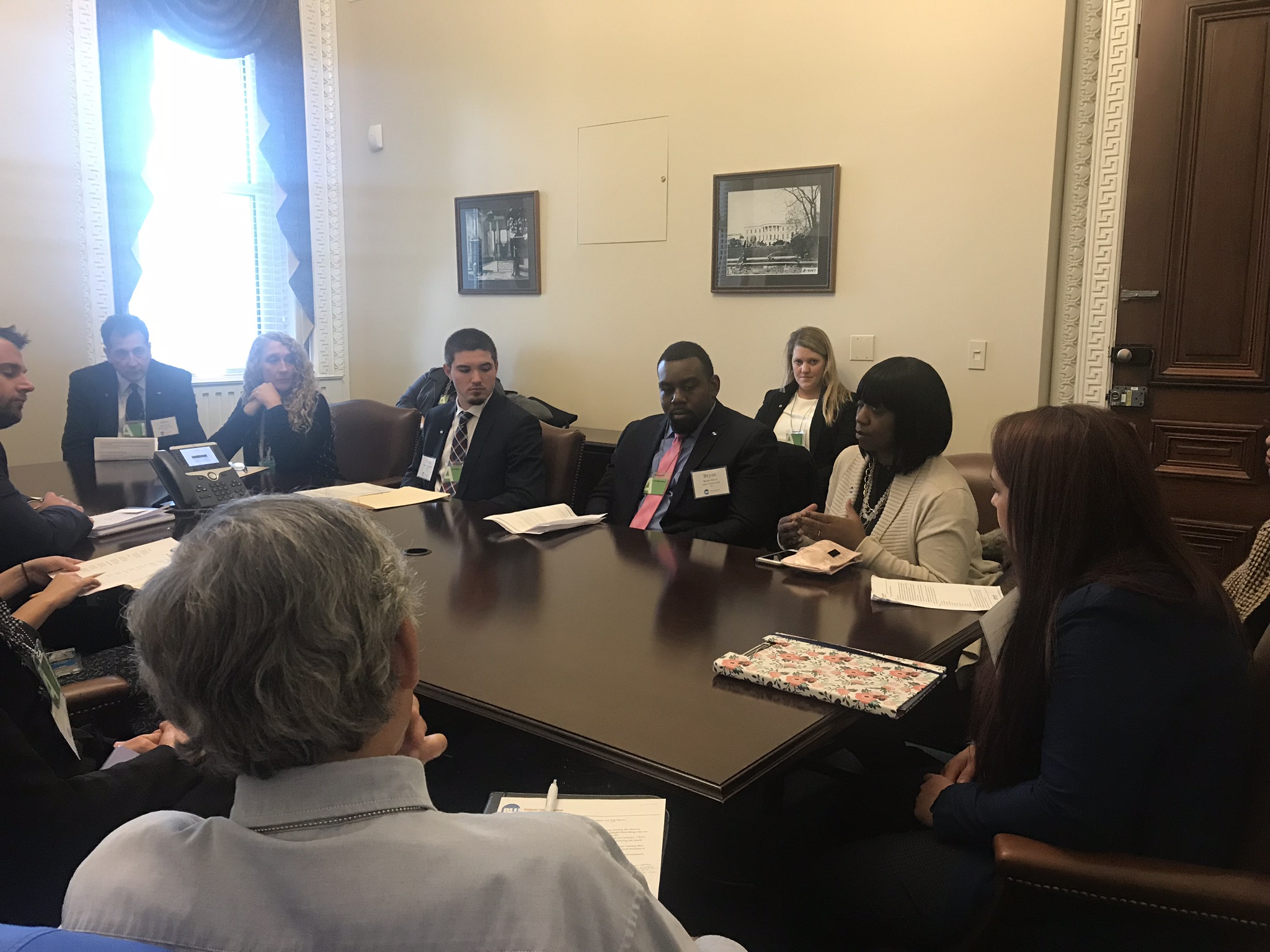
On December 5-6, 2018, business leaders took to the hill to discuss with policymakers the critical importance of work-based learning and apprenticeship programs that meet the needs of small and midsize employers. Taking a unique and powerful approach, each BLU member was accompanied by an associate in their company who has benefitted from upskilling, on-the-job training, or apprenticeships to tell their own stories about the impact that these kinds of programs can have for workers. This made for unexpectedly impactful storytelling, as each of these frontline employees had a different experience that highlighted how training has benefitted their career advancement and growth—but, more poignantly, how those opportunities impacted their own lives and the lives of their families. These stories allowed policymakers to hear that beyond addressing the skills gap and shoring up a stronger supply of skilled workers—a critical need for the business community—the benefits of these programs extend to workers in a much deeper and more personal way.
The group, which included teams from AccuRounds, Catalyte, Jostin Construction, Holder Construction, Optimax, and Wyoming Machine, met with key staff for both the majority and minority members of the Senate HELP Committee, as well as representatives from the White House Domestic Policy Council. In each of these meetings, the frontline employees shared their training experience and the opportunities they encountered—as well as the barriers—to gain the skills they needed. Their personal stories were followed by those of the business leaders, who spoke to why these programs are integral to how they find and train their talent and how federal policy solutions can make it easier for them to make these kinds of investments in their workforce. The policy recommendations discussed in these meetings addressed three major priorities for small and midsize businesses:
- Support for regional sector partnerships, which reduce administrative and cost burdens on small and midsize businesses by bringing these strategies to scale across shared industry needs;
- Investments in support services, which can dramatically shift completion outcomes for nontraditional and working students who are working to build new skills;
- Targeted tax credits that incentivize employer investment in their current and future workforce.
Each of these proposals is designed to support small and midsize businesses who are desperately in need of skilled workers—whether by fostering collective strategies across community stakeholders, by providing supports that are necessary for students to complete these training programs, or by strategically incentivizing businesses to drive investment back into their own workforce. However, as we heard from the frontline employees that attended this fly-in, investments in workers can have far greater and more lasting impacts on the individuals receiving the training. Telling these stories side by side helped to paint a full picture for these policymakers, and it proved to be an incredibly powerful approach to skills policy advocacy.
Beyond these recommendations, these meetings helped reinforce that employers and workers alike benefit from successful work-based learning strategies. As Congress looks to take up apprenticeship legislation next year and the White House continues to emphasize workforce training, these measures ensure that local communities can identify and address their needs together and have the resources to mobilize that work on the ground.
Resources:
Making Work Based Learning Work for Businesses